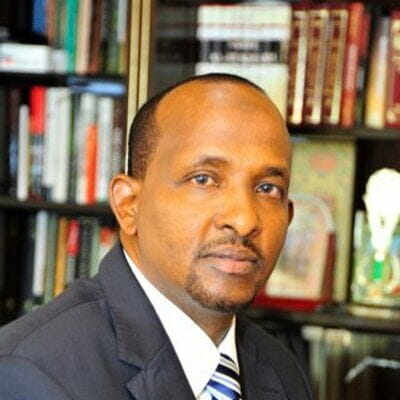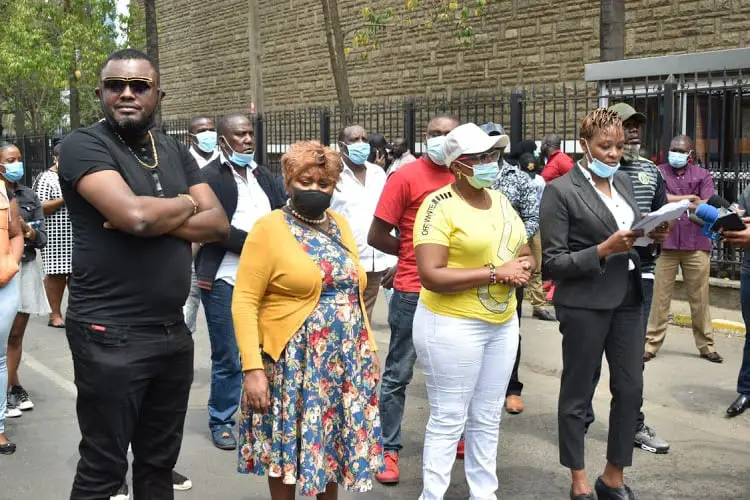Pressure is mounting on the Judicial Service Commission to revoke the recent appointment of 21 kadhis with a section of Muslim clerics claiming that the exercise violated the constitution as there was no regional balance.
Bribery, nepotism, favouritism and lobbying are said to have been the criteria in the appointments that have sparked outrage.
Among those calling for the revocation of the appointments are Supreme Council of Muslims Coast coordinator Sheikh Khitamy who claims that during the interviews, applicants from Lamu were treated unfairly while the appointments favoured applicants from North Eastern region. Insiders say, leader of majority in parliament Aden Duale had a hand in the naming.The idea is to use the new Kadhis to be Jubilee pointment in the coming 2017 polls. In 2013, the Muslim community was behind Raila Odinga led Cord and the vote bloc has to be counterchecheked using the newly named Jubilee friendly Kadhis, we have the information.
Also opposed to the appointments is the Council of Imams and Preachers of Kenya North Rift chapter which has called on the Chief Justice Willy Mutunga to cancel the appointments.
The call was made by the council chairman Sheikh Abubakar Bini who claimed the appointments were marred by bias and nepotism. Sheikh Bini said the appointments favoured one region of the country leaving out other regions stating that this was against the constitution which stipulate that all regions should be considered and included in appointments for equal representation and participation in development programmes. He pointed out that the process should be done afresh for equal level ground and inclusiveness.
It has now emerged that even the Chief Kadhi Ahmed Mohdhar was not involved in the shortlisting of the candidates and was only notified of the exercise a day before the interviews.
The controversial appointments now bring to 56 the number of Kadhis appointed to serve in Kadhi courts across the country. Kadhi courts administer matters of marriage, divorce and inheritance in the Muslim community.
According to the appointments, out of the 21 kadhis, 11 are from North Eastern, five from Coast, two from Nyanza and one each from Western, Central and Eastern.
One of the applicants Swaleh Izudin from Lamu has also complained saying JSC chairman Mohammed Wasarme did not interview him after he was disqualified for not producing his KCPE certificate despite having a degree in Islamic law from Darumustafa University in Yemen. Izudin now says he did not carry his KCPE certificate because he had his KCSE certificate and degree certificates but Wasarme could not hear of that and chased him away.
Another bone of contention is that during the interviews, applicants from Lamu were not allowed to express themselves in Kiswahili despite the fact that Kiswahili is a national language. Another applicant Mohammed Bwana claims that Wasarme was arrogant during the interviews and that he had a fixed mindset and that he had formed opinion on who should be appointed and who should not be.
The controversial list of the 21 new kadhis includes those to serve in the Kadhi II Position; Daffa Hassan Omar (Wajir), Ahmed Issack Maalim (Mandera), Sambul Muhammed Muhydin (Mandera), Hassan Muhammed Hassan (Mandera), Wehliye Muhammed Sheikh (Mandera), Muhammed Kule Muhammed (Wajir), Fahad Ismail Muhammed and Mahamud Ibrahim Muhammed both of whom hail from Garissa.
Other appointees include Mustafa Guyo Shunu, Dogo Sheikh Dabaso and Dadacha Ali Ibrahim. All the three appointees come from Isiolo county.
Also appointed are Wendo Shaban Wendo (Kwale), Muhammed Garama Randu (Mombasa), Mwambele Muhammed Suleiman (Mombasa), Mahdi Omar Swaleh (Kilifi) and Gavana Awadh Muhammed from Tana River.
The list of Kadhis also include Muriuki Nicholas Muriithi (Tharaka Nithi), Ali Wayu Bakari (Nyanza), Karanja Thulkifl Waweru (Kiambu), Opacha Jamal Imodo (Busia) and Nyaboga Idris Nyamagosa who hails from Kisii.
Those opposed to the appointments now say that the JCS did not follow Article 170 of the constitution which enumerates the minimum qualifications for a person to be appointed as a kadhi.
Among the qualifications were requirement that all applicants must have a degree in Islamic law, profess in Islamic faith, be able to communicate in English, Kiswahili and Arabic, be proficient in computer applications and possess the qualifications in Chapter Six of the constitution.


















































